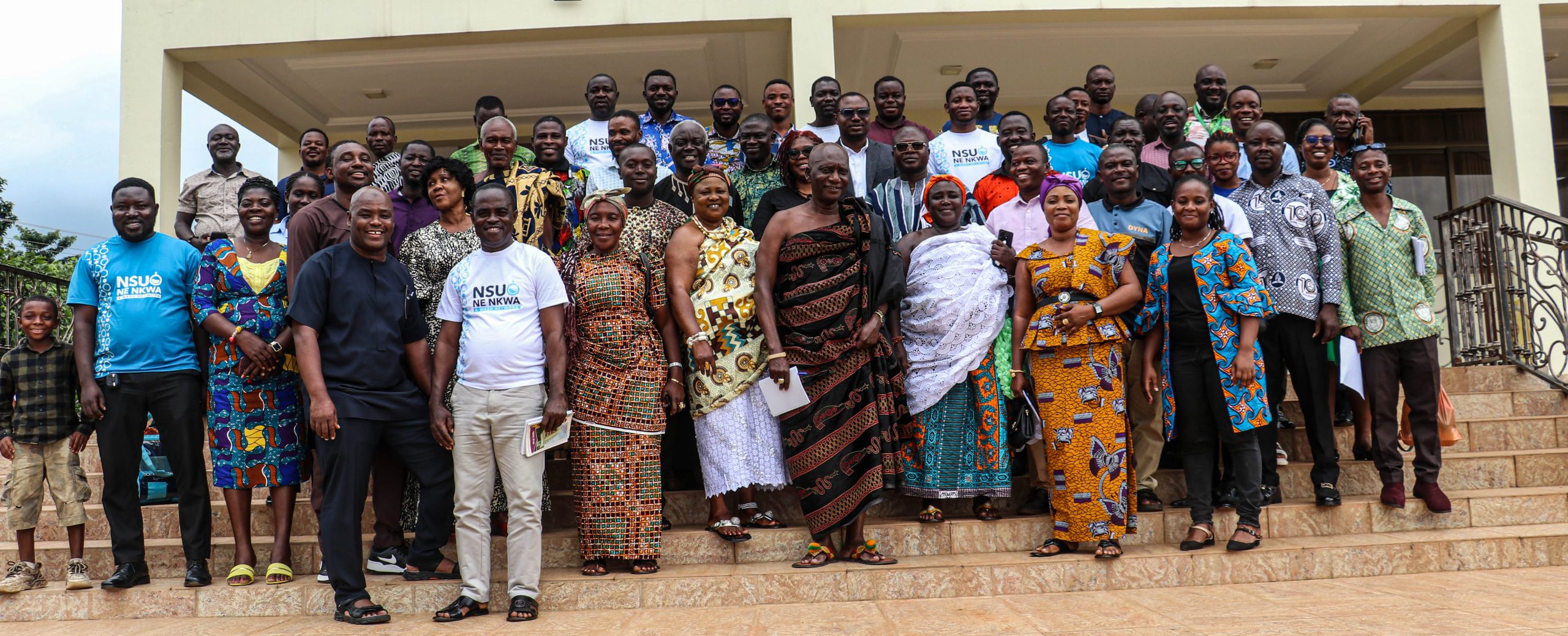RLAP 2025: Ahafo Region Unites for Safely Managed Water Services

On 27 August 2025, the International Rescue Committee (IRC) Ghana, in partnership with the Ahafo Regional Coordinating Council, organized the inaugural Regional Learning Alliance Platform (RLAP) in Goaso, Ahafo Region. This pivotal learning event convened a diverse group of stakeholders, including representatives from all six districts—Asutifi North, Asutifi South, Asunafo North, Asunafo South, Tano North, and Tano South—with the generous support of the Conrad N. Hilton Foundation. The primary objective was to validate findings from a comprehensive study examining the critical drivers and barriers affecting the provision of safely managed water services in rural communities across Ghana.
Key insights from the session included:
- Utility-led and Private Service Delivery Models: The discussions revealed that models led by utilities and private entities are increasingly proving effective in expanding household water connections and enhancing service reliability. These models leverage existing infrastructure and management expertise to reach more households in urban and peri-urban areas.
- Challenges Faced by Community-managed Systems: Stakeholders highlighted several challenges inherent in community-managed water systems. These included infrastructure limitations, such as aging distribution networks and the lack of maintenance equipment, financial constraints that hinder operational sustainability, and governance gaps that often lead to poor accountability and ineffective management practices.
- Enhancements Needed for Sustainable Management: The group underscored the necessity for targeted subsidies aimed at low-income households to improve accessibility, the implementation of digital billing systems to streamline revenue collection and payment processes, and the creation of inclusive citizen engagement platforms that ensure community voices are heard in decision-making.
- Water Quality Monitoring and Planning Integration: A consensus emerged on the pressing need to incorporate standardized water quality monitoring protocols into regional district planning. Additionally, there was a call to strengthen the technical capacity at the local level to empower district water management teams.
Through engaging buzz group sessions, participants collaboratively developed practical recommendations aimed at accelerating progress towards Sustainable Development Goal (SDG) 6.1, which seeks to ensure universal access to safely managed drinking water. There was a shared commitment among participants to advocate for systemic changes that would establish safely managed water services as a standard for all, with a particular focus on underserved and rural communities in the Ahafo Region. This collective effort signifies a vital step towards improving public health and environmental sustainability across the region.
IRC Ghana remains committed to supporting districts in translating these insights into action and fostering sustainable partnerships for universal #WASH access by #2030.
Easy Water for Everyone, World Vision Ghana, Saha Global, Aquaya, Safe Water Network, Project Maji, The Church of Jesus Christ of Latter-day Saints
#RLAP2025 #WASHGhana #SDG6 #WaterForAll #AhafoRegion #ANAMInitiative #SafelyManagedWater #PartnershipForChange #IRC #AhRCC

